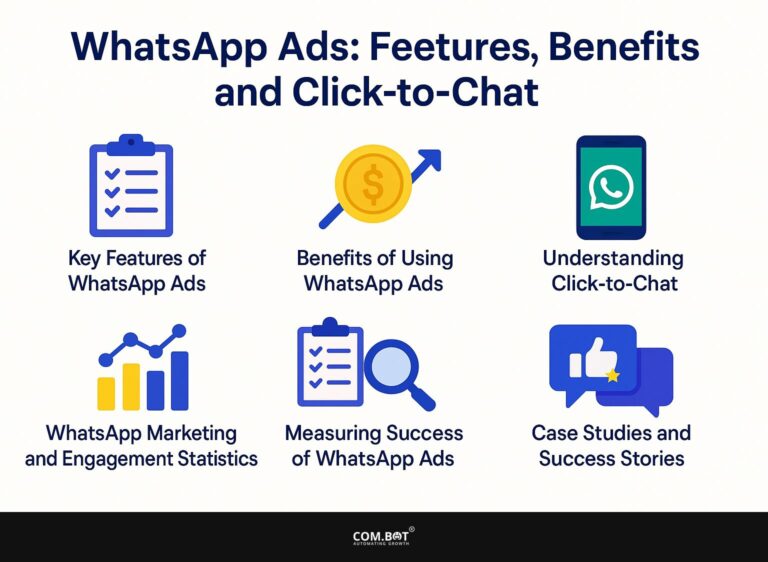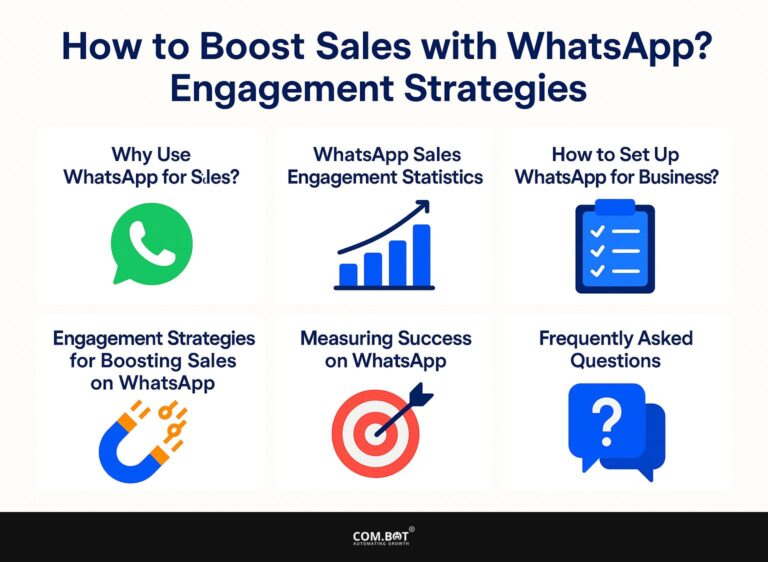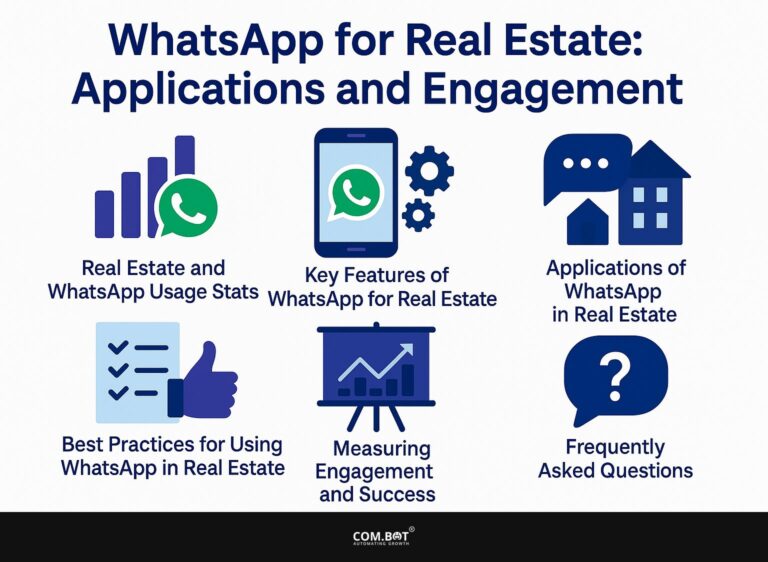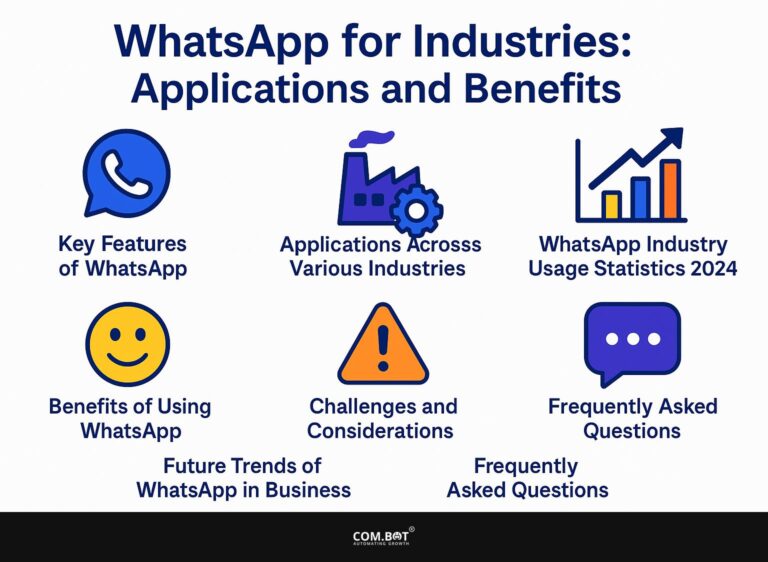WhatsApp’s Global Reach: Features and Applications

WhatsApp has become a top messaging app, used by more than 2 billion people around the world, especially popular in places like India. WhatsApp Business has changed the way businesses interact with their clients.
In this article, we will look at WhatsApp’s worldwide popularity, its key functions, and various uses that show its importance in daily life and work communication. Learn how this platform keeps influencing today’s communication!
Key Takeaways:
- People all over the world use WhatsApp, coming from different regions and backgrounds, which makes it a popular way to communicate internationally.
- Its core features of messaging, voice and video calls, and media sharing make it an essential tool for personal and business communication.
- With end-to-end encryption and a role in emergency communication, WhatsApp keeps improving and remains important in the constantly changing online world.
- 1 Global User Base
- 2 WhatsApp User Statistics 2024
- 3 WhatsApp User Statistics 2024
- 3.1 WhatsApp Global Statistics: User Base Growth
- 3.2 WhatsApp Global Statistics: Message Statistics
- 3.3 WhatsApp Global Statistics: Gender Distribution
- 3.4 WhatsApp Global Statistics: Country Statistics
- 3.5 WhatsApp Global Statistics: Business Statistics
- 3.6 1. Demographics and Regional Distribution
- 3.7 2. Impact of Internet Accessibility
- 4 Core Features of WhatsApp
- 5 Applications in Everyday Life
- 6 WhatsApp in Crisis Situations
- 7 Privacy and Security Features
- 8 Future Trends and Developments
- 9 Frequently Asked Questions
1. Overview of the App
WhatsApp allows users to send text messages, voice messages, make video calls, and share files seamlessly with its user-friendly interface. Plus messaging, WhatsApp offers high-quality voice and video calling, supporting both one-on-one and group conversations.
Users can easily initiate calls by tapping the phone or camera icons next to a contact. The app also supports various media sharing options; you can send images, videos, documents, and even share your location with just a few taps.
WhatsApp works on both iOS and Android, so it’s simple to use. You can connect your chats and media on different devices through the web version. This smooth connection improves user experience on any platform.
2. Historical Context and Growth
Launched in 2009 and acquired by Meta in 2014, WhatsApp has experienced exponential growth, which has been instrumental in shaping its current user base.
At the start of 2023, over 2 billion people around the world were using WhatsApp, making it a leading messaging app. Its adoption surged during the COVID-19 pandemic, as people sought reliable communication tools.
Important features such as complete encryption, voice and video calls, and integration with business APIs have greatly increased user involvement. WhatsApp shows its dedication to improving user satisfaction by adding payment features and group calls, all while keeping security high. Related insight: WhatsApp Business: Growth and Communication in the US
Global User Base
WhatsApp is used in many countries, especially India, Brazil, and the United States (our expert analysis on its rise and business implications provides deeper insights into its global impact).
WhatsApp User Statistics 2024
WhatsApp User Statistics 2024
WhatsApp Global Statistics: User Base Growth
WhatsApp Global Statistics: Message Statistics
WhatsApp Global Statistics: Gender Distribution
WhatsApp Global Statistics: Country Statistics
WhatsApp Global Statistics: Business Statistics
The WhatsApp User Statistics 2024 Give a detailed look at the platform’s wide presence and its key part in worldwide communication. With a staggering 2.9 billion global monthly active users WhatsApp remains the leading messaging app. This expansive user base has grown substantially, with a notable 1 billion user increase from 2016 to 2020 and an impressive 20,000% growth since its inception in 2010. These numbers show WhatsApp’s popularity and how it has changed to meet user needs over time.
Message Statistics highlight the platform’s daily engagement levels. Users send an astounding 100 billion messages daily, reflecting the app’s integral role in daily communication. Additionally, 7 billion voice messages are sent each day, indicating users’ preference for varied communication modes. Interestingly, 1% of messages include attachments, emphasizing the importance of multimedia in modern communication.
The Gender Distribution reveals a fairly balanced user base, with 52.4% male and 47.5% female users, showcasing its widespread appeal across demographics. This balance keeps WhatsApp important to different types of users.
Country Statistics show significant regional engagement, with 532.2 million users in India alone, highlighting the country’s reliance on WhatsApp for communication. The top three countries collectively account for 750.5 million users, indicating the platform’s concentrated presence in key markets.
The Business Statistics illustrate WhatsApp’s growing significance in commerce, with 200 million monthly active business users. With 1 billion business app downloads in 2024 Businesses are using WhatsApp more to connect with customers, shown by the significant results. $382 million in business revenue. This growth showcases WhatsApp’s effectiveness as a business tool, facilitating communication and transactions.
Overall, WhatsApp User Statistics 2024 The platform is important for communication in both personal and business settings. It has seen a lot of user growth, and people use it in different ways, showing its global impact.
1. Demographics and Regional Distribution
As of 2023, WhatsApp has captured 400 million users in India alone, showcasing its significant penetration in emerging markets. This popularity comes from its easy-to-use design and complete encryption, which makes it the top choice for communication.
WhatsApp’s ability to function on low bandwidth allows users in rural areas to stay connected. To reach this market, businesses should think about using the WhatsApp Business API, which allows them to set up automatic responses and communicate with customers quickly.
Using local marketing methods-like regional languages and culturally suitable content-can increase user interest and keep them coming back in this varied group.
2. Impact of Internet Accessibility
The fast increase in internet availability in different areas has led to more people using WhatsApp, particularly in countries that are still growing economically.
In regions like Africa and Southeast Asia, internet penetration has soared from just 10% to over 50% in the past decade. This increase has created a suitable environment for using messaging apps like WhatsApp.
For example, as of 2023, WhatsApp boasts over 487 million users in India alone, fueled by improved mobile networks and affordable data plans. A study revealed that countries with higher internet access see messaging app usage rates climb to over 70%. This correlation illustrates how infrastructure improvements directly benefit digital communication platforms.
Core Features of WhatsApp
WhatsApp provides various features for communication, including instant messaging, video calls, and group chats.

1. Messaging and Voice Calls
WhatsApp allows seamless text and voice messaging with features like voice notes and quick replies, essential for efficient communication.
The technology behind these features relies on VoIP (Voice over Internet Protocol), enabling users to send messages and make calls over the internet, ensuring faster delivery.
For personal communication, WhatsApp’s quick replies make responding easier, while voice notes feel more personal.
Companies use WhatsApp in work settings to help customers. They answer questions by using group chat to work together with their teams smoothly.
Tools like WhatsApp Business offer extra features, such as automatic replies and data analysis, improving both personal and work communication.
2. Video Calling and Group Chats
WhatsApp lets you make clear video calls and allows group chats with as many as 256 people, which is great for working together.
In team collaboration, WhatsApp’s video calling enables face-to-face interaction, improving communication clarity. For instance, teams can hold weekly check-ins or brainstorm sessions with ease.
Group chats allow people to talk immediately, providing quick responses and decisions. For events management, you can create dedicated group chats for each event, allowing teams to coordinate tasks effectively.
Using WhatsApp Web with the mobile app helps make communication easier. You can easily manage conversations from your computer, which increases efficiency during hectic planning periods.
3. Media Sharing Capabilities
WhatsApp allows people to send photos, documents, and videos easily, with a limit of 100MB for documents and 16MB for media files. This flexibility allows for various personal and business use cases.
For example, individuals can effortlessly share vacation photos in a group chat, while businesses can send product brochures or presentations directly to clients. WhatsApp supports voice messages and video calls, enhancing communication further. Users should note that excessive sharing can lead to reduced engagement.
To make the most of WhatsApp, create specific groups for clients or friends to organize conversations and focus on important topics.
Applications in Everyday Life
WhatsApp is an important app for staying in touch with people in personal and work situations, improving interaction and connection.
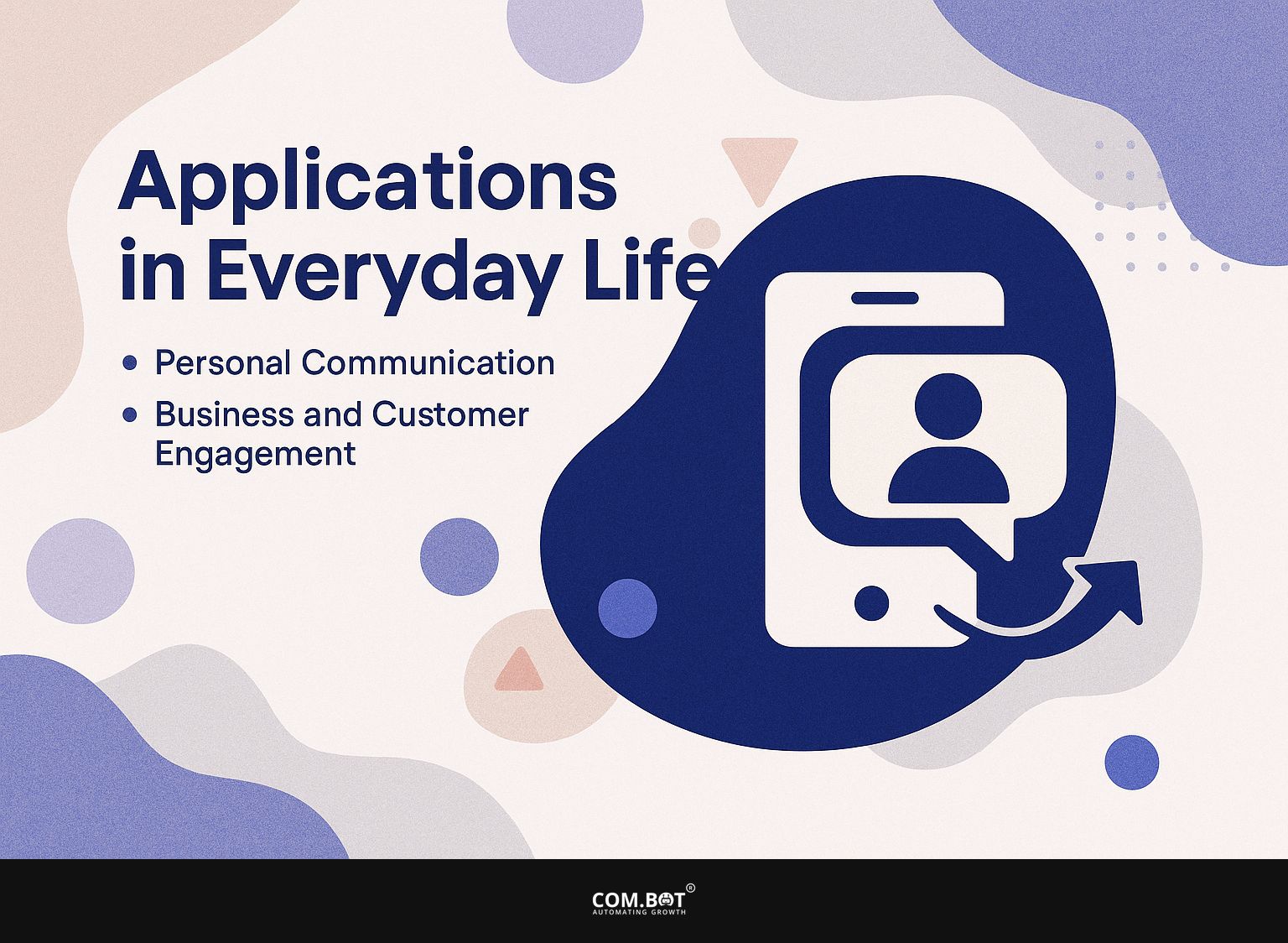
1. Personal Communication
People use WhatsApp to chat quickly, covering everything from casual talks to sharing important life updates. Users can improve their communication by using voice messages. This helps when text alone doesn’t fully express what they want to say.
For instance, sharing a quick voice note can convey tone and emotion more effectively than written words. Creating groups allows friends and family to chat together in a single conversation, which is useful for planning events or exchanging information.
Using WhatsApp’s status feature is another great way to share updates or moments in real-time, allowing connections to engage passively without interrupting ongoing chats.
2. Business and Customer Engagement
Companies use WhatsApp Business to make customer communication better by providing features such as automatic replies and product catalogs to improve service. These features result in notable outcomes; companies report a typical 70% rise in response speed and a 40% increase in customer satisfaction.
Businesses can use automatic responses to answer common questions, ensuring customers receive information quickly. The product catalog feature allows businesses to showcase their items clearly, making it easy for customers to browse and inquire about services.
Combining WhatsApp with CRM tools like HubSpot makes communication easier, allowing for customized interaction and improved monitoring of customer activities to support lasting connections.
WhatsApp in Crisis Situations
In times of crisis, WhatsApp is an important tool for quickly spreading information and organizing efforts among those impacted.
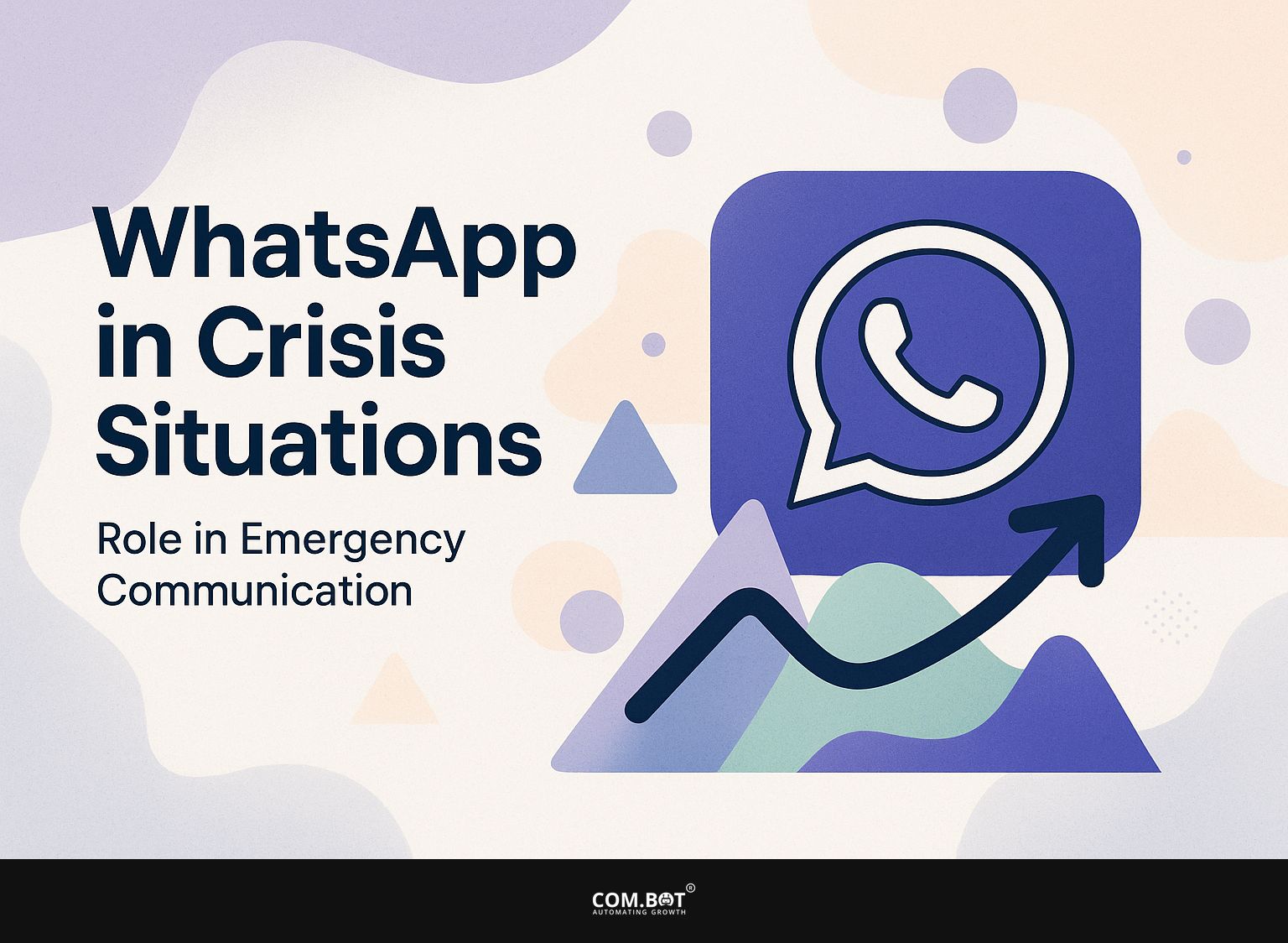
Role in Emergency Communication
WhatsApp plays an important role during crises, helping organizations and governments rapidly share critical information with large groups.
During the COVID-19 pandemic, the Indian government used WhatsApp to share health guidelines, providing real-time updates to millions of people.
In 2019, Durban, South Africa, set up a WhatsApp group for police and residents. This helped them talk quickly during violent protests and respond right away.
These examples show how WhatsApp’s instant messaging features can improve coordination, enabling authorities to notify citizens about safety actions, evacuations, or health guidelines, which can save lives during emergencies.
Privacy and Security Features
WhatsApp focuses on keeping users safe with features like end-to-end encryption, which keeps messages private. This approach aligns with the principles outlined in our discussion on Two-Factor Authentication via WhatsApp: Setup and Best Practices, enhancing account security.
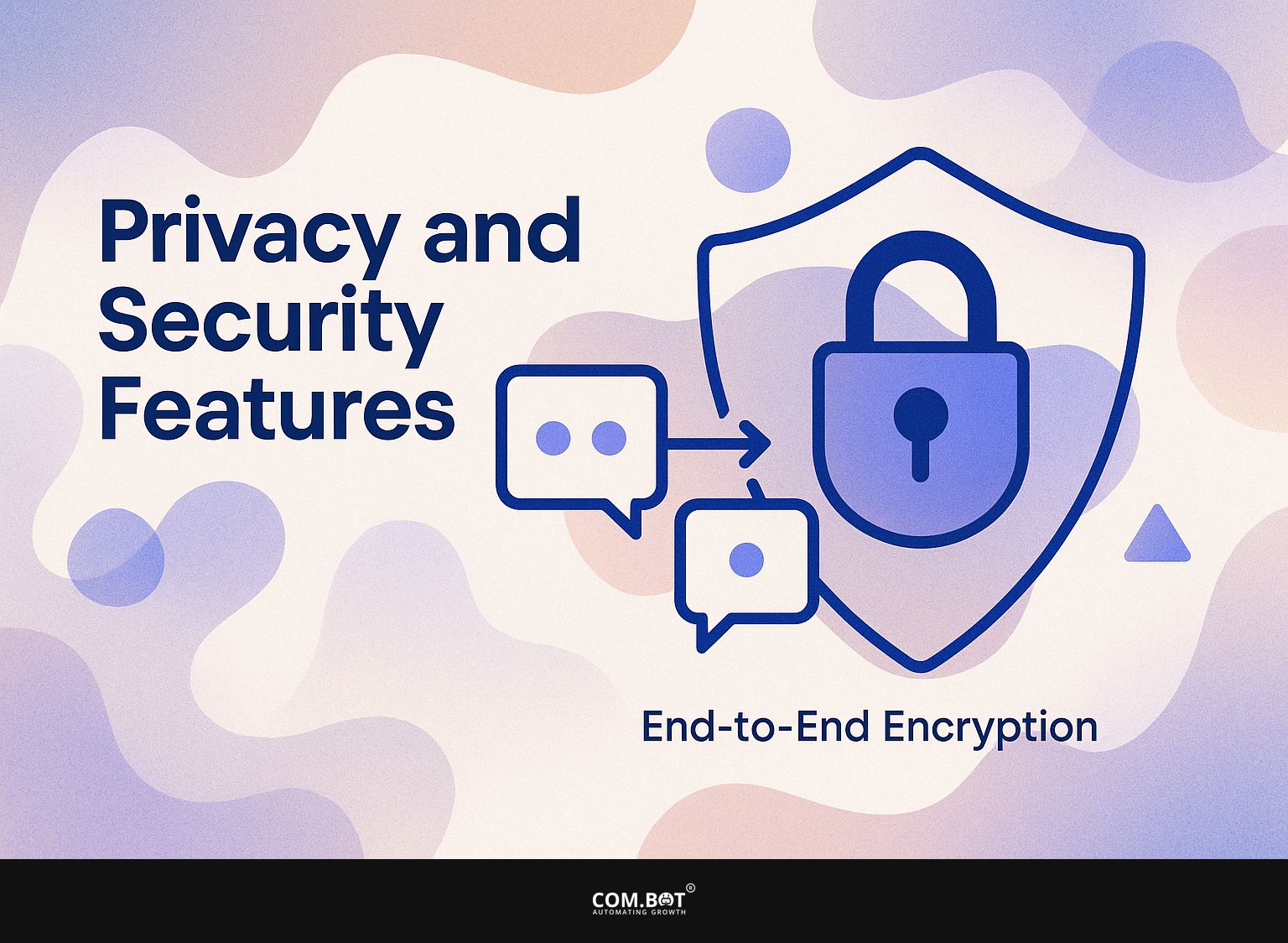
End-to-End Encryption
End-to-end encryption on WhatsApp means that only the sender and recipient can read messages, with no access for third parties, including WhatsApp itself. This encryption system encodes messages on the sender’s device. Only the recipient’s device can decode them, using unique keys that remain private.
For example, even if a hacker intercepts a message during transmission, they will see only scrambled data.
Features like disappearing messages add another layer of privacy by automatically deleting content after a set time. This approach significantly mitigates risks associated with data breaches, ensuring that personal conversations remain secure and confidential.
Future Trends and Developments
WhatsApp is expected to add important new features and tools that match what users want and need over the next few years. As businesses look to enhance their communication strategies, utilizing WhatsApp can be a game-changer. Learn more about how WhatsApp Business is driving growth and communication in the US and discover the potential it offers to elevate user engagement.

1. Potential New Features
Upcoming changes to WhatsApp might add better video calling features, more useful tools for businesses, and easier connections with other Meta services.
One expected feature is the addition of virtual backgrounds in video calls, enabling users to keep their privacy or improve branding. Improved business tools could involve advanced analytics, letting companies track customer interactions effectively.
Connecting with Meta’s system-such as easy sharing of Facebook and Instagram stories-will make it simpler for users to interact across different platforms. These improvements are mainly based on user feedback, showing an increased need for better communication tools for both personal and work use.
2. Challenges Ahead
As WhatsApp grows, it faces challenges like regulatory scrutiny around data privacy and competition from emerging messaging platforms.
Regulatory issues have already affected platforms like Facebook and TikTok, forcing them to adopt stricter data protection measures. WhatsApp may need to make its encryption practices clearer and change how it gets user consent.
The growth of platforms like Signal and Telegram shows the competition in the market; both have become popular by offering strong privacy features.
To handle these challenges, WhatsApp might team up with privacy advocacy groups to strengthen user trust while adjusting its business model to offer more useful services, like better encryption for businesses.
Frequently Asked Questions
1. What is WhatsApp’s global reach?
WhatsApp is used and accessible by people all over the world. It is currently available in over 180 countries and has more than 2 billion active users globally.
2. What features does WhatsApp offer?
WhatsApp offers a variety of features, including instant messaging, voice and video calling, group chat, file sharing, location sharing, and end-to-end encryption for secure communication.
3. Can I use WhatsApp to make international calls?
Yes, WhatsApp allows users to make voice and video calls to anyone around the world for free, as long as they have an internet connection and the app installed on their device.
4. What are some popular applications of WhatsApp?
Apart from personal messaging, WhatsApp is widely used for business communication, online shopping, and even for news and information dissemination by media outlets. It is also used for virtual events and conferences, especially during the pandemic.
5. Is WhatsApp available in multiple languages?
WhatsApp works in more than 60 languages, allowing people who speak different languages to use it easily.
6. How does WhatsApp ensure user privacy?
WhatsApp uses end-to-end encryption for all messages, which means only the sender and recipient can access the content. WhatsApp does not save user data on its servers, which keeps personal information private and safe.
